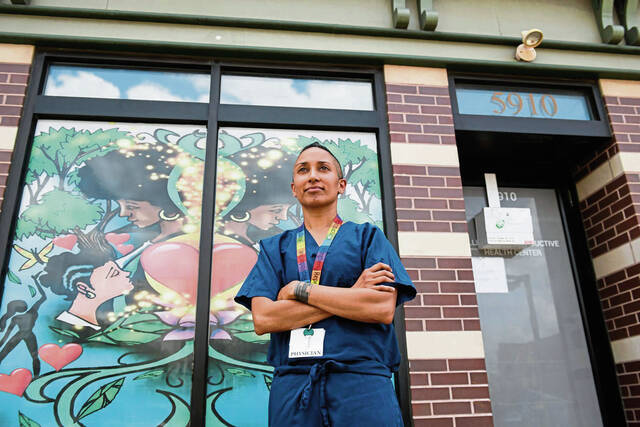Nearly three years after the onset of the covid-19 pandemic, hospitals still struggle with significant labor shortages. Health care workers are facing long hours and massive burnout. Earlier this year, as many as 93% of surveyed Pittsburgh hospital workers were considering leaving the profession.
Pennsylvania’s aging population has upped the demand for care, exacerbating the health care worker shortage. The commonwealth has the second-highest number of residents over 65 amid ever-troubling expectations of further shortfalls in primary care providers.
Nationally, projections see the physician shortage increasing between 21,000 and 55,000 — further limiting health care access for all patients.
Pennsylvanians are already suffering. Our commonwealth ranks fifth in the nation for the number of medically underserved areas (MUA), a federal designation measuring the lack of access to primary care. And especially concerning are its nearly 150 designated health professional shortage areas (HPSAs), many of which concentrate within western Pennsylvania.
Communities like Aliquippa, North Braddock and Hazelwood suffer from a shortage of health care providers, and Pennsylvania’s regulations make it worse.
In Pennsylvania, advanced practice registered nurses (APRNs), like nurse practitioners (NPs), cannot practice to the full extent of their training. Instead, these providers must collaborate with two physicians, both of whom can place limits on how and where they practice.
In other words, Pennsylvania law requires two physicians to rubber-stamp an NP’s work. That means less time for patients — and there is no evidence that these rules result in better care.
Pennsylvania’s antiquated regulations are cutting out primary care providers. Take Lynn Heard, a certified registered nurse practitioner (CRNP) with a doctor of nursing practice (DNP) who has been delivering family medical care for over 20 years. Her coordinating physician’s retirement forced the closure of her small practice in 2020. Heard was unable to find new physicians — as many physicians today work within large hospital systems that restrict them from coordinating with outside providers.
“When my practice closed, I was most concerned about my elderly patients,” Heard said. “They had to drive 10 or 15 miles. That may not seem like a lot, but for a 90-year-old it is.”
Her practice shut down at the start of the pandemic — right when her patients needed her most. One of her former patients with melanoma still hasn’t found a new primary care provider. For Bonnie McFarland, a longtime patient of Heard’s, the practice shutdown didn’t make sense.
“Why can’t we have a choice? That’s how I feel about it. My choice is Lynn, I want Lynn,” McFarland says. “I don’t want doctors who don’t take … time. I want Lynn who spends the time with me.”
To date, 24 states — including neighboring Maryland — have reformed their laws to grant full practice authority to NPs and give patients that choice.
A new study from the Commonwealth Foundation considers the impact of Maryland’s reform and finds that granting NPs and certified nurse midwives (CNMs) full practice authority would improve health care access and outcomes in Pennsylvania.
Specifically, the report estimates that full practice authority could increase the number of NPs by nearly 30 percent and eliminate close to half of Pennsylvania’s geographic health provider shortage areas.
And by comparing the health care outcomes of individuals on both sides of the Pennsylvania and Maryland border, the report suggests that full practice authority in Pennsylvania would decrease the number of residents reporting poor or fair health, including mental health.
The shortage of health care access is nothing new — moreover acknowledged by governor-elect Josh Shapiro. In 2023, Shapiro and state lawmakers must work together to increase the supply of primary care providers.
Empowering NPs with full scope of practice would allow these trained, frontline heroes to see and treat more patients. Knowing they have the freedom to do their jobs would also incentivize more would-be nurses to join the provider pipeline.
Notably, research shows NPs are more likely to move to states with full practice authority, like Maryland, than a state like Pennsylvania.
Now is the time for policymakers to embrace full practice authority for NPs so that patients in Western Pennsylvania — and across the state — have access to the quality care they need.
Elizabeth Stelle is director of policy analysis for the Commonwealth Foundation.








